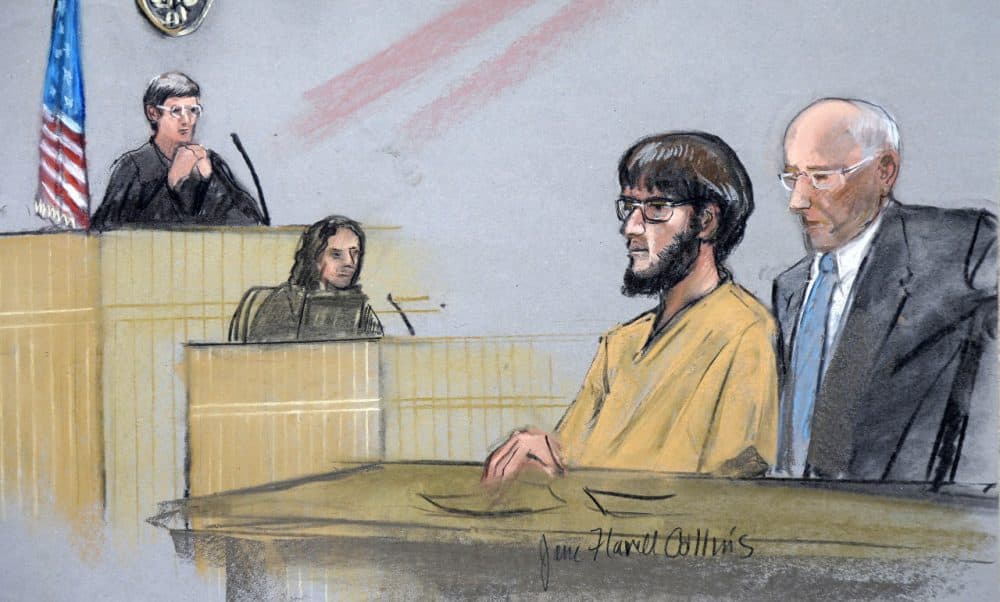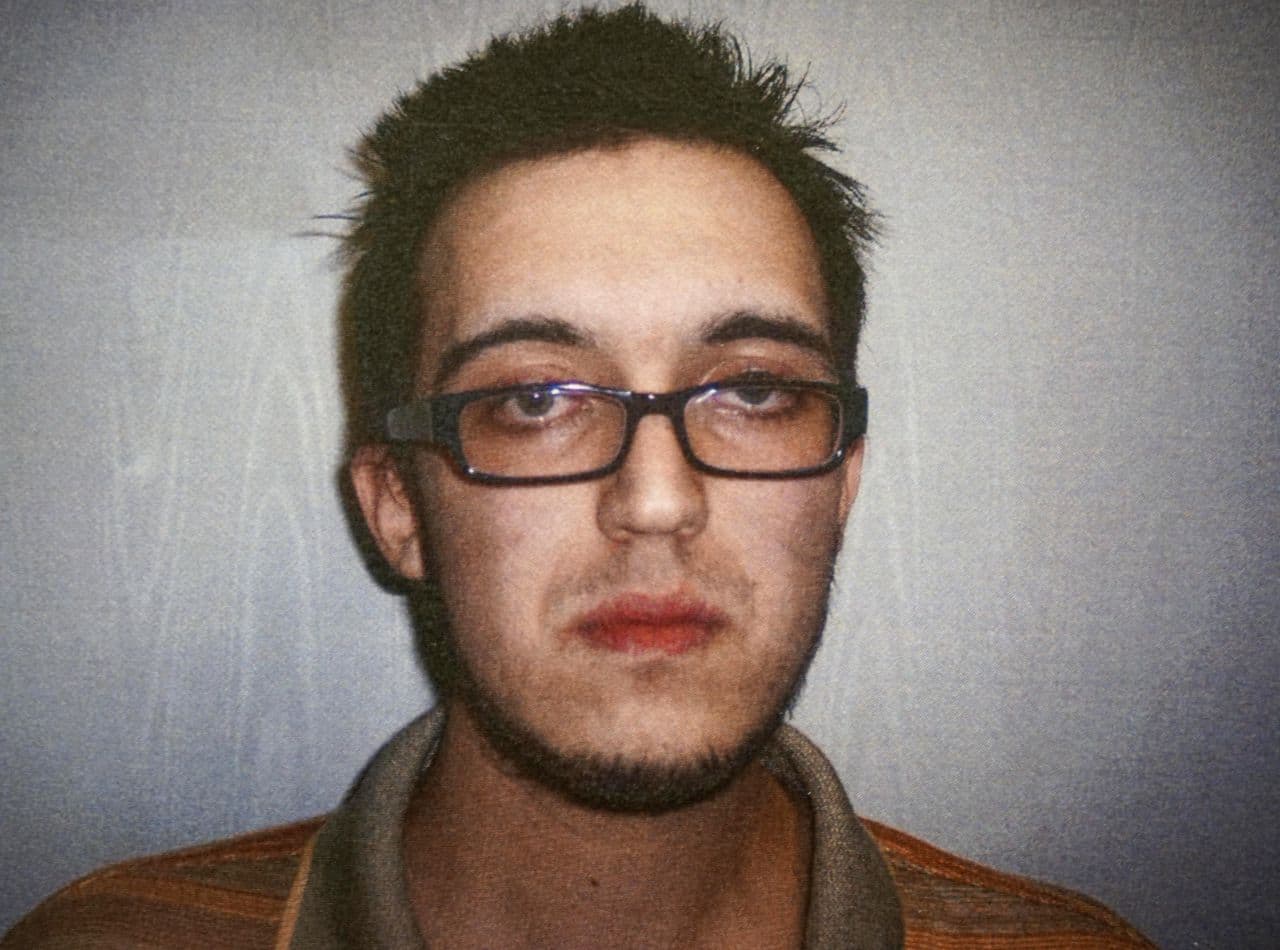Advertisement
Did The Boston Police Captain Who Warned FBI About His Son Have Other Choices?
Resume
The arrest of a terror suspect after a sting operation in western Massachusetts last week has brought attention to a difficult decision made by the suspect's father.
It was a warning from the father that the young man might pose a danger that first brought Alexander Ciccolo to the attention of the FBI. The young Ciccolo is now being held, charged with plotting to detonate a bomb at an unknown university.
But, did the concerned father have any other options for his son?
Imagine you have a 23-year-old son with a history of mental illness going back to childhood. He's gone "off the deep end." He's talking about joining ISIS and fighting in Iraq and Syria.
That was the dilemma faced by Boston Police Capt. Robert Ciccolo, whose son was arrested on the Fourth of July.
"Obviously, he struggled with him, and he couldn't set him straight," said Boston Police Commissioner William Evans. "Maybe now getting locked up was the best thing. Maybe he'll get the proper medical care he needs."
Catch that word "maybe." It raises the question whether there was another path the captain could have taken, a path that might have had a better outcome for the public and his son suffering from mental illness.
"I think this is a real tragedy from every perspective," said Cambridge defense attorney Harvey Silverglate, who is one of several voices suggesting there was a better alternative. "This is a kid who should have been involuntarily committed in a mental hospital. He would have been no danger to society. He would have been no danger to himself."

Under Massachusetts law, any person may apply to a district court for "a warrant to apprehend" someone in order to seek commitment to a mental health facility of "a mentally ill person whom the failure to confine would cause the likelihood of serious harm," says longtime criminal defense attorney Michael Natola.
Initial confinement to the facility is for up to three days, Natola explains, during which a physician conducts an examination. If the subject is deemed a danger, he or she can be committed for six months, and for one-year periods thereafter, if necessary. Because it is a civil matter, "they do not require proof beyond a reasonable doubt, which is the standard required in criminal cases," Natola said.
In the case of Alexander Ciccolo, his father went to the FBI instead.
The decision resulted in a criminal investigation, which led, as in so many other cases, to monitoring, an informant wired to record sound, and then a sting operation. When the FBI's informant provided Ciccolo with the assault weapons he had said he wanted, the FBI agents arrested him.
At a bail hearing, the government convinced the judge that Ciccolo embraced violent beliefs and demonstrated clear intent. There were the Molotov cocktails in his house, for instance, along with a pressure cooker Ciccolo told the informant he had purchased to bomb a college cafeteria.
Ciccolo admired and defended ISIS in an interrogation videotaped by the FBI after his arrest. The son's obsession with Islam, as his father described it when he went to the FBI, follows a turbulent history of psychiatric hospitalization and treatment programs as an adolescent before he reached the age of majority and stopped further treatment.
If Alexander Ciccolo is mentally ill, will he get the help that his father hoped for him?
"Some would like to convince us that there are mental health services available in those kinds of facilities and nominally -- nominally -- they are available, or they are present, I should say. But in my experience, which is lengthy, the quality of those so-called services is terrible, to the point where it's virtually no treatment at all," Natola said.
Those who disagree with Natola say instead that services for inmates and detainees vary wildly.
But public safety concerns in this case have to trump the clinical well-being of Alexander Ciccolo, says June Binney of the National Alliance on Mental Illness. She's worked for years overseeing mental health programs for jails and prisons.
"It's a hard standard to meet in this state to have someone held beyond a couple of hours or a couple of days," she said. "Going to the police is the shortest way to hold someone if you truly believe there is a danger."
Both FBI affidavits and federal prosecutors offer significant evidence that Ciccolo poses a real danger.
Silverglate says that clear danger and Ciccolo's clear mental illness would have resulted in his commitment to a locked psychiatric ward.
"If, however, I'm wrong, and if a judge actually turned down the application for involuntary hospitalization, the feds could have been standing right outside the door and picked him up on a criminal warrant," Silverglate said.
But that didn't happen. And the father, who faced an agonizing decision that no one wants to second-guess, made a different choice.
Ciccolo has been ordered held without bail -- a dangerous man with a history of mental illness. Maybe he'll get help.
Ciccolo's family has requested privacy at this time from media inquiries.
This segment aired on July 20, 2015.
